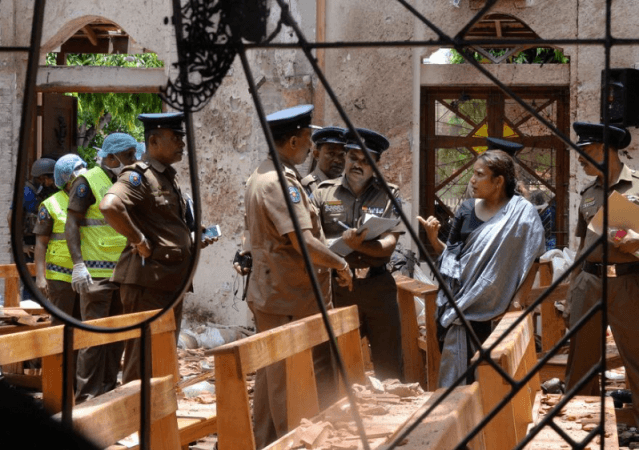
A local Islamic State outfit - National Thowheed Jamaath (NTJ) - came under the scanner for possibly carrying out multiple blasts through high-end hotels and churches holding Easter services in Sri Lanka, killing at least 350 people, including dozens of foreigners.
The NTJ, blamed for the Sri Lanka bombings, has been found possessing over Rs 140 million in cash and other assets worth over Rs 7 billion. During an investigation by the CID, the assets and the cash were recovered. According to Sri Lankan police spokesman SP Ruwan Gunasekera, half of the cash has been taken under CID custody and the remainder was found deposited in several bank accounts. The CID has taken all sort of measures to suspend those accounts.
At least 73 suspected members of the NTJ have been arrested since the April 21 attacks, according to Gunasekera. He also revealed that the alleged accused were being questioned by the CID and the Terrorist Investigation Department (TID). "There are 54 suspects including seven women under CID custody while 19 others including two women are under TID custody," he said as quoted by news agency PTI.

Over 350 people, including 11 Indians, were killed and nearly 500 others injured in the coordinated suicide bombings, which targeted three Catholic churches and three luxury hotels. The ISIS claimed the attacks, the island nation's worst, but the government blamed ISIS-linked local Islamist extremist group NTJ, which has its presence mainly in the eastern province of Sri Lanka.
The move to ban the outfits came after the Lankan Parliament adopted a newly-enforced emergency regulation following the powerful blasts - six in quick succession and then two more hours later - left hundreds injured and wrought devastation, including at the capital's well-known St Anthony's Shrine, a historic Catholic Church in the country's deadliest violence since the devastating civil war ended in 2009.

















